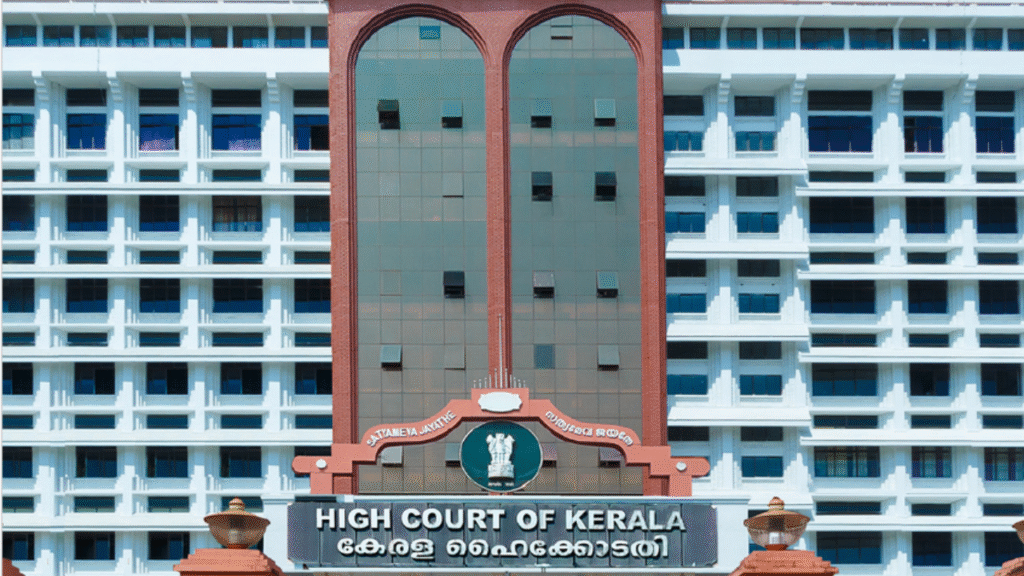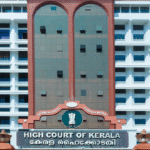(2025) 8 KCD 1 : 2025 KER 57269
Mahatma Gandhi National Rural Employment Guarantee Act, 2005 (MGNREGA) – Social Audit Mechanism – Independence of Social Audit Unit – Composition of Governing Body – Conflict of Interest.
The petition, filed in public interest, sought to emphasize the need to strengthen the social audit mechanism under the Mahatma Gandhi National Rural Employment Guarantee Act, 2005 (Act of 2005) and called upon the State of Kerala to take proactive measures. The Petitioner, a former Ombudsman of MGNREGA Kerala State Mission, alleged that the social audit process was being undermined by the State through the inclusion of unqualified individuals or those connected with the scheme’s implementation, thereby nullifying the objective of independent social audit. Specifically, the Petitioner contended that members of the Mahatma Gandhi NREGA Social Audit Society (Respondent No. 3) were also part of the State Employment Guarantee Council, which oversees scheme implementation, creating a conflict of interest and violating the negative mandate of independent social audits under the Mahatma Gandhi National Rural Employment Guarantee Audit of Schemes Rules, 2011 (Rules of 2011). The Petitioner sought a declaration that the Governing Body of the Social Audit Society constituted by the State was illegal and ultra vires the Act, Rules, and Master Circulars issued by the Union Government, and a direction to reconstitute it to ensure complete independence and avoid conflict of interest.
The State contended that the Governing Body of the Social Audit Society had been reconstituted via an order dated March 21, 2022, addressing most of the Petitioner’s concerns, and argued that the Employment Guarantee Council is not an “implementing agency” as defined under Section 2(g) of the Act, and therefore, its members are not disqualified from being part of the Social Audit Society. The State also asserted that the Master Circulars were merely broad guidelines and not binding.
Held:
The High Court recognized merit in the Petitioner’s contention that the State had not approached the issue of social audit independence in the required manner and needed “course correction”.
The Court emphasized that the fundamental principle of an auditing mechanism is its separation from the agencies being audited, requiring an external, unbiased agency for effectiveness. Rule 5(2) of the Rules of 2011, which prohibits implementing agencies from interfering with social audits, merely reiterates this inherent principle of audit independence.
The Court noted that the initial composition of the Social Audit Society by the State was not in consonance with the Central Government’s Master Circulars, particularly regarding the inclusion of members with experience in transparency and public accountability from civil society and academic institutions.
Even after reconstitution, the General Body of the Social Audit Society included various government department secretaries and other ex-officio members involved in public administration, demonstrating a failure to distinguish between “work” and “audit of the work”. The Court stressed that the required expertise for non-ex officio members was specific to transparency and public accountability, not general public work administration.
The Court referred to international principles (UN General Assembly Resolution) and Supreme Court pronouncements (Swaraj Abhiyan v. Union of India, Exploitation of Children in Orphanages in State of Tamil Nadu, In Re v. Union of India and Others) that underscore the critical role of independent audit institutions in promoting efficiency, accountability, effectiveness, and transparency in public administration.
While the Employment Guarantee Council may not strictly fall under the definition of an “implementing agency” under Section 2(g), it is involved in the implementation process and monitors action taken on social audit findings, necessitating its separation from the Social Audit Society to ensure true independence.
The Court stated that the State’s approach should be to proactively enhance the independence of the Social Audit Society, removing all doubts and semblances of overlap, rather than merely justifying existing appointments. Social audit is a mandatory and crucial tool for enhancing the efficacy of MGNREGA schemes and serves as a model for public accountability.
Directions Issued:
The Chief Secretary of the State was directed to constitute a committee within four weeks comprising the Chief Secretary, the Principal Accountant General, the Director of the Social Audit Unit, and two persons experienced in transparency and public accountability related to social audit [86(i)].
This Committee will examine the composition of the General Body, Governing Body, and Executive Committee of the Mahatma Gandhi NREGA Social Audit Society in light of the principles highlighted in the judgment and make a reasoned decision regarding necessary changes [86(ii)].
The Chief Secretary will then issue necessary orders based on the Committee’s decision [86(ii)].
The reasoned decision taken by the Chief Secretary, along with the Committee’s report, shall be notified and published on the State Government’s website within three months of the Committee’s constitution [87(iii)].
The Writ Petition was disposed of in these terms.


